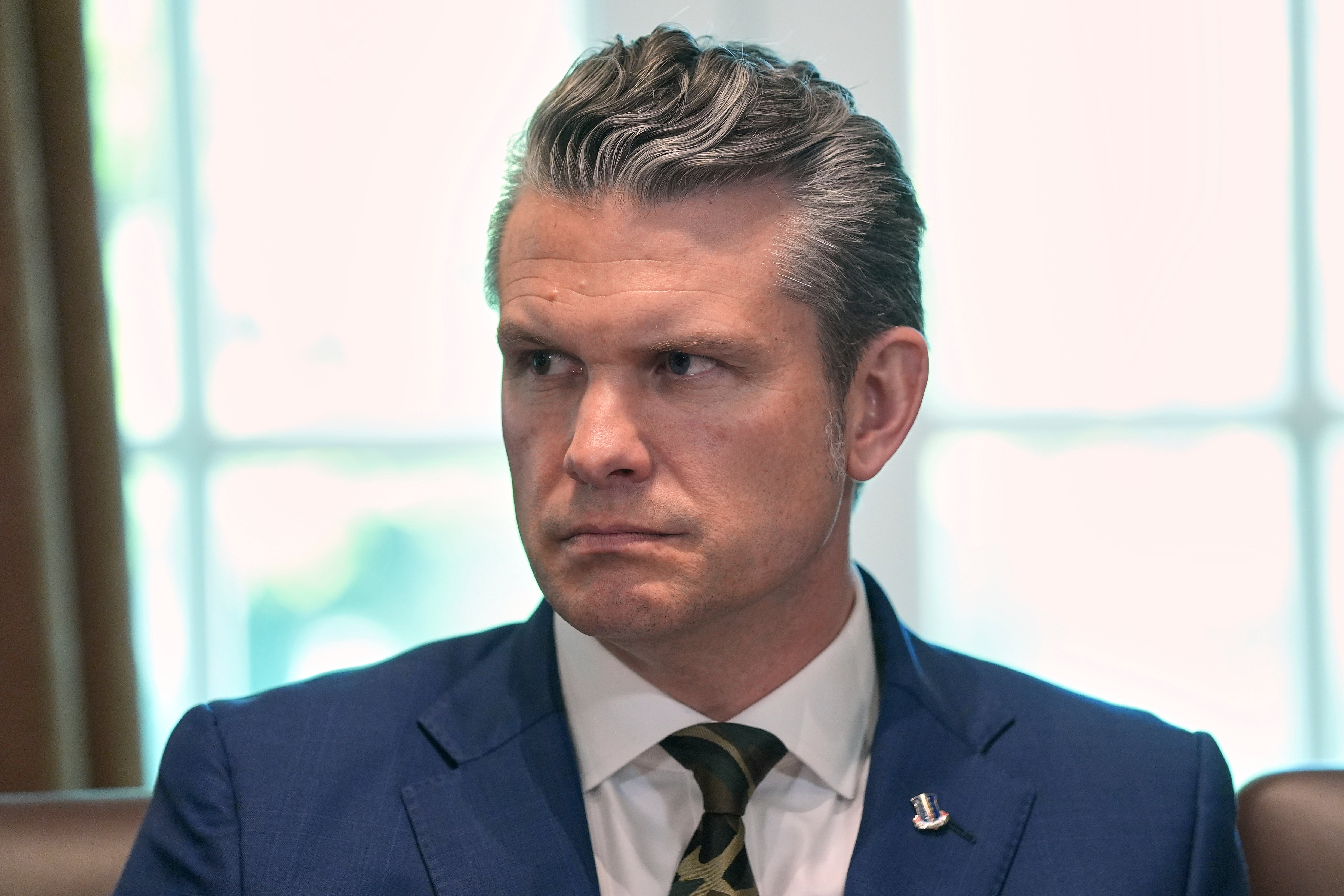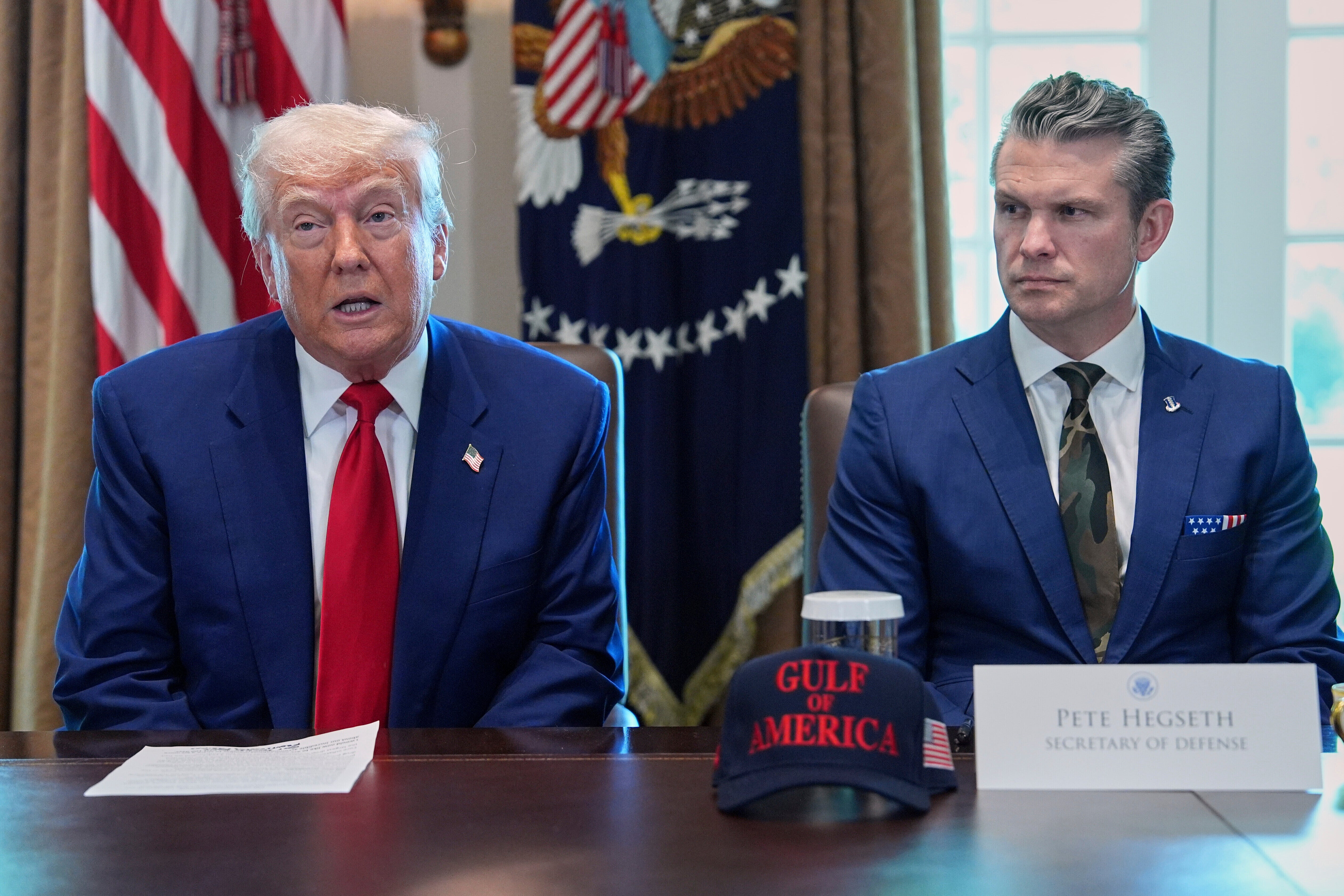The extent of Secretary of Defense Pete Hegseth’s use of Signal at the Pentagon has been laid bare in a new report that claims he prefers the app to the department’s official communication channels.
Hegseth’s use of Signal to discuss sensitive military plans in Yemen first came to light in March but now the Wall Street Journal reports that he also used the app to liaise with aides daily about official Pentagon business and was participating in at least a dozen chats.
Among the most sensitive messages Hegseth reportedly sent on the app was to instruct aides to inform U.S. allies overseas about an unfolding military operation, according to the newspaper, citing two people familiar with his management.
The former Fox News host reportedly sent the messages from an unsecured line in his Pentagon office from his personal phone.

The newspaper also reported that Hegseth’s military aide, Marine Col. Ricky Buria, was given access to his phone and communicated the messages about March’s attack on Houthis in Yemen with Hegseth’s wife, brother and personal attorney.
The Independent has contacted the Pentagon for comment.
The extent of Hegseth’s use of the app follows President Donald Trump’s ousting of national security adviser Mike Waltz after the “Signalgate” scandal. Waltz created the infamous group chat, where Hegseth shared sensitive military plans, and inadvertently added The Atlantic’s editor-in-chief Jeffrey Goldberg. Waltz has been shifted from his post and named Trump’s nominee to serve as United Nations ambassador.
Trump has continued to stand by Hegseth and said in an interview Sunday with NBC’s Meet the Press that his job is “totally safe.”
Intelligence experts said the use of the app, particularly on personal phones, is risky.
“Signal is considered unclassified by the government for a reason,” Marc Polymeropoulos, a former senior U.S. intelligence officer, told the Journal. “It’s clear that U.S. government systems are having a hard time keeping up with the required pace of business.”
The Pentagon warned against the use of nongovernmental apps for official business in a 2023 memo.

“Unmanaged ‘messaging apps,’ including any app with a chat feature, regardless of the primary function, are NOT authorized to access, transmit, process non-public DoD information,” the memo said. “This includes but is not limited to messaging, gaming, and social media apps. (i.e., iMessage, WhatsApps, Signal).” It noted that an exception must be submitted for use only if the app is “critical to fulfilling mission operations.”
The Defense Department’s acting inspector general, Steven Stebbins, is currently investigating whether Hegseth broke any rules regarding the sharing of classified information on the app. Hegseth has repeatedly denied sharing classified information.
The messages Hegseth sent to the group that included the journalist were sent on March 15 and contained a detailed timeline of when U.S. forces would strike Houthi targets. “Target Terrorist is @ his Known Location so SHOULD BE ON TIME,” one of the messages Hegseth wrote that day said.
At 2:10 p.m., “more F-18s” were to launch, Hegseth wrote. “1415: Strike Drones on Target (THIS IS WHEN THE FIRST BOMBS WILL DEFINITELY DROP, pending earlier ‘Trigger Based’ targets),” Hegseth wrote in another update.
The latest revelations about Hegseth’s use of the app follows reports that he had it installed on his office computer because of the Pentagon’s patchy cell phone service.
Hegseth directed the installation of the encrypted app on a desktop Pentagon computer as a “work-around that enabled him to use Signal in a classified space,” the Washington Post reported last month. Chief Pentagon spokesman Sean Parnell denied the claim in a statement to The Independent at the time.



